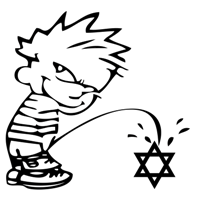wombatwoody
Gold Member
     Offline
Offline

Australian Politics
Posts: 3207
Wombat NSW
|
By 8 July 1948 the first truce had come to an end. It took the UN mediator, Count Folke Bernadotte, ten days to negotiate another one, which came into effect on 18 July. As we have seen, 15 May 1948 may have been a very significant date for the ‘real war’ between Israel and the Arab armies, but it was totally insignificant for the ethnic cleansing operations. The same goes for the two periods of truce – they were notable landmarks for the former but irrelevant for the latter, with one qualification, perhaps: it proved easier during the actual fighting to conduct large-scale cleansing operations as the Israelis did between the two truces, when they expelled the populations of the two towns of Lydd and Ramla, altogether 70,000 people, and again after the second truce, when they resumed the large-scale ethnic cleansing of Palestine with huge operations of uprooting, deportation and depopulation in both the south and the north of the country.
From 9 July, the day after the first truce ended, the sporadic fighting between the Israeli army and the Arab units from Jordan, Iraq, Syria and Lebanon continued for another ten days. In less than two weeks, hundreds of thousands of Palestinians had been expelled from their villages, towns and cities. The UN ‘peace’ plan had resulted in people being intimidated and terrorised by psychological warfare, heavy shelling of civilian populations, expulsions, seeing relatives being executed, and wives and daughters abused, robbed and in several cases, raped. By July, most of their houses had gone, dynamited by Israeli sappers. There was no international intervention the Palestinians could hope for in 1948, nor could they count on outside concern about the atrocious reality evolving in Palestine. Neither did help come from the UN observers, scores of whom roamed the country at close hand ‘observing’ the barbarisation and killings, but were unwilling, or unable, to do anything about them.
One United Nations emissary was different. Count Folke Bernadotte had arrived in Palestine on 20 May and stayed there until Jewish terrorists murdered him in September for having ‘dared’ to put forward a proposal to re-divide the country in half, and to demand the unconditional return of all the refugees. He had already called for the refugees’ repatriation during the first truce, which had been ignored, and when he repeated his recommendation in the final report he submitted to the UN, he was assassinated. Still, it is thanks to Bernadotte that in December 1948, the UN General Assembly posthumously adopted his legacy and recommended the unqualified return of all the refugees Israel had expelled, one of a host of UN resolutions Israel has systematically ignored. As president of the Swedish Red Cross, Bernadotte had been instrumental in saving Jews from the Nazis during the Second World War and this was why the Israeli government had agreed to his appointment as a UN mediator: they had not expected him to try to do for the Palestinians what he had done for the Jews only a few years before.
Bernadotte succeeded in focusing international pressure of some kind on Israel, or he had at least produced the potential for such pressure. In order to counteract this, the Israeli architects of the ethnic cleansing program realised they would need to involve the state’s diplomats and the Foreign Ministry more directly. By July the political apparatus, the diplomatic corps and the military organisations within the new State of Israel were already working harmoniously together. Prior to July, it is not clear how much of the ethnic cleansing plan had been shared with Israeli diplomats and senior officials. However, when the results gradually became visible the government needed a public relations campaign to stymie adverse international responses, and began to involve and inform those officials responsible for producing the right image abroad – that of a liberal democracy in the making. Officials in the Foreign Ministry worked closely with the country’s intelligence officers, who would warn them in advance of the next stages in the cleansing operation, so as to ensure they would be kept hidden from the public eye.
~ The Ethnic Cleansing of Palestine by Prof. Ilan Pappe; Chapter 8: Completing the Job: October 1948–January 1949
|

 Forum
Forum

 Home
Home 

 Album
Album 

 Help
Help

 Search
Search

 Recent
Recent 

 Rules
Rules 

 Login
Login

 Register
Register





 Pages:
Pages: 

